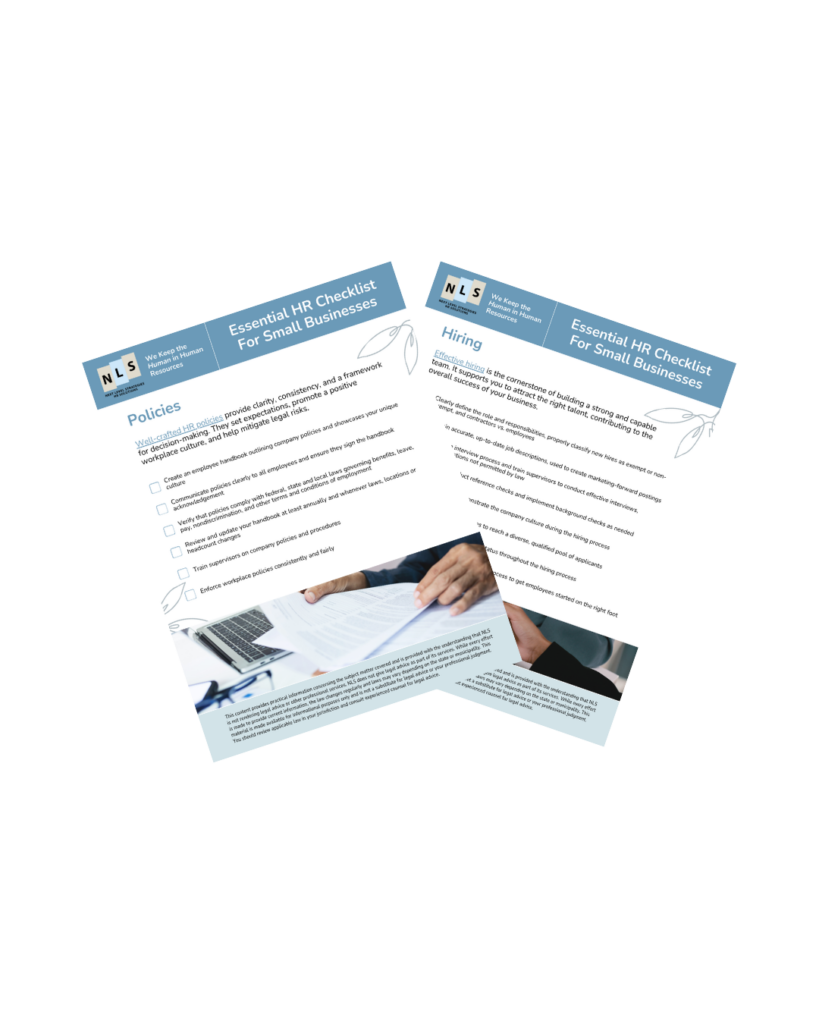
You think you’re doing everything right, but are you? Where are your biggest exposures? Wouldn’t it be great to know and shore these up so you can sleep better?
HR assessments provide a framework for suggested human resources function improvements. They act like a health check for your HR function, identifying what’s working, what’s missing, and where changes are needed. This helps you stay compliant, retain talent, and keep your employees satisfied. Understanding the importance of HR assessments can help your business thrive by making sure your practices are effective and match your business goals.




Let us help you stay compliant, retain talent, and keep your employees satisfied

HR Assessments provide a strategic and operational analysis of existing workplace policies, practices, and programs. This process can identify any gaps in HR effectiveness that need to be addressed such as recruiting, onboarding, performance, payroll and compensation, non-exempt and contractor classification, benefits, LOA process, all required documentation, separation, and a variety of wage and hour compliance requirements.
In order for the policies and processes to be considered top-notch, there are multiple steps to complete a thorough assessment from reviewing the current workplace policies, programs, and practices.

Conducting an HR assessment determines whether employees’ needs are being met. Here’s why it’s important:
Here are some key times to think about doing an HR assessment:

Subscribe and join our community of other business and nonprofit owners who want to keep up with the latest HR news. Gain first access to new HR guides, checklists, webinar trainings, tools, and more to elevate your team.


Here are some key questions you might consider when conducting an HR assessment to ensure your organization’s HR practices are effective and compliant:
To prepare effectively for an HR assessment, it’s important to organize the process carefully. Here are some steps to help you get ready:

You can conduct an HR assessment internally if you have the necessary skills and resources. However, conducting a comprehensive and unbiased HR assessment can be challenging. It demands a thorough understanding of HR best practices and an objective viewpoint. This process can be lengthy, potentially spanning several months, and may divert attention from your daily operational tasks.
For many companies, especially those without a dedicated HR team, the benefit of hiring an HR consultant for HR assessments is significant. External HR consultants bring a fresh viewpoint, help identify potential blind spots, and deliver measurable results and actionable recommendations. They also help you compare your practices to industry standards, which can be invaluable in understanding how your HR functions stack up against best practices.
With guidance from Next Level Strategies, you can confidently address questions like, ‘Is my business HR compliant?’ and ‘How can we improve our recruiting and employee training strategies?’ We will also help you implement effective solutions to attract, manage, and retain top talent.
Take the first step towards a compliant, productive workplace. Contact Next Level Strategies today for a free consultation to maximize the full potential of your HR operations.
Next Level Strategies © 2025. All Rights Reserved. | Privacy Policy | ADA Compliance | Site By